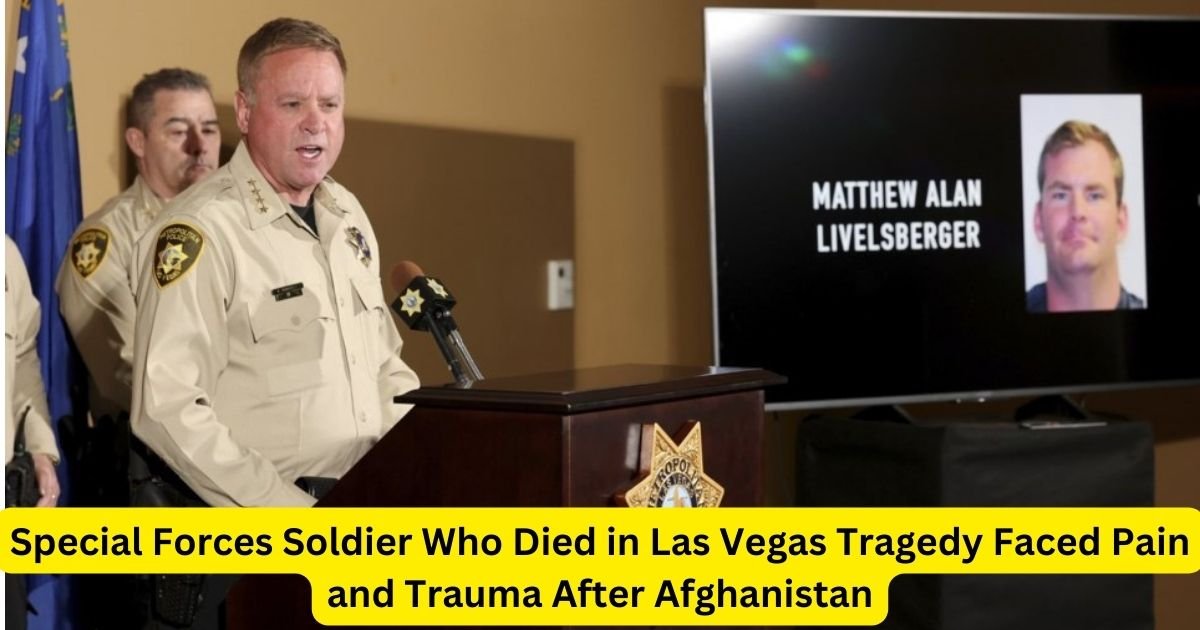News Body: A decorated Special Forces soldier who tragically took his own life in a dramatic Cybertruck explosion on New Year’s Day had been struggling with deep emotional and physical pain following his deployments in Afghanistan. Matthew Livelsberger, 37, who earned five Bronze Stars, including one for valor in combat, confided in a former girlfriend about his battles with trauma, exhaustion, and relentless pain.
Alicia Arritt, 39, an Army veteran who served as a nurse from 2003 to 2007, revealed that Livelsberger opened up to her about his deteriorating mental and physical health when they started dating in Colorado in 2018. According to messages Arritt shared, Livelsberger described how lingering injuries from his time in combat affected his daily life, leaving him in constant pain and battling sleepless nights.
“My life has been a personal hell for the last year,” Livelsberger wrote in one message to Arritt, expressing relief at finding someone he could trust. Arritt’s experience as a military nurse in Germany, where she cared for soldiers with traumatic brain injuries, made her acutely aware of the signs Livelsberger was exhibiting.
Arritt believes Livelsberger’s symptoms pointed to traumatic brain injury (TBI) and post-traumatic stress disorder (PTSD) stemming from multiple combat-related concussions. “He would go through periods of withdrawal, and he struggled with depression and memory loss,” she said. “He told me about blast injuries that caused his concussions.”
The mental toll of his service also weighed heavily on Livelsberger. He frequently relived violent incidents from his time in Afghanistan, struggling to cope with the emotional aftermath of his experiences. According to Arritt, the military’s culture often prevented him from seeking the help he needed.
“I kept encouraging him to go to therapy,” she said. “But he felt like he couldn’t. In his unit, there was this belief that mental health struggles were a sign of weakness. Special Forces soldiers are expected to be tough, and he felt immense pressure to maintain that image.”
Arritt believes that the lack of proper care and the stigma surrounding mental health in the military ultimately contributed to Livelsberger’s tragic death. His story highlights the ongoing challenges faced by veterans who return home carrying the invisible wounds of war, often without the support they desperately need.
Read More News:
Inmate Escapes from Minimum-Security Unit at Saskatchewan Penitentiary
Key Tax Changes in 2025: What to Expect at the Pump, at Home, and on Your Paycheque
